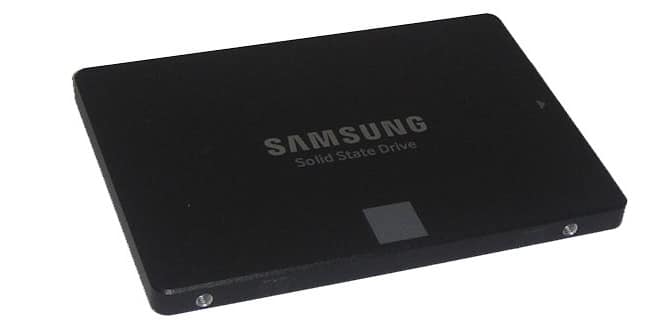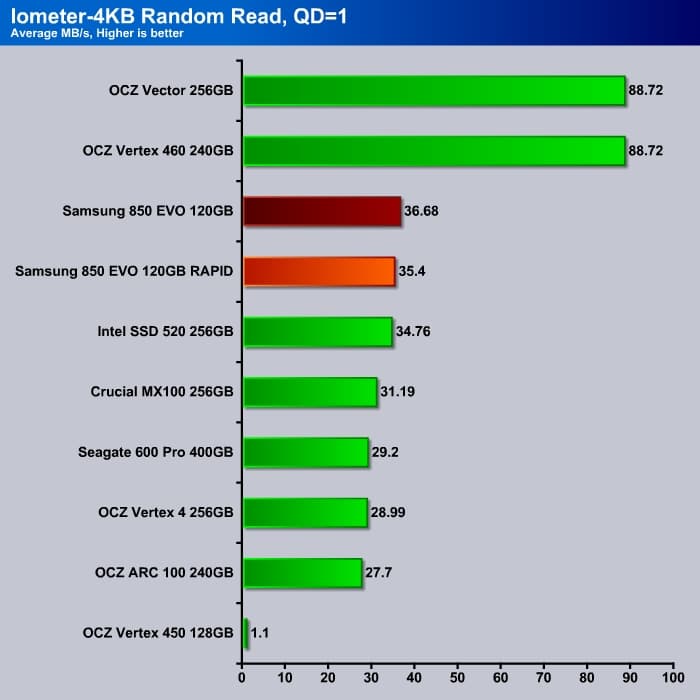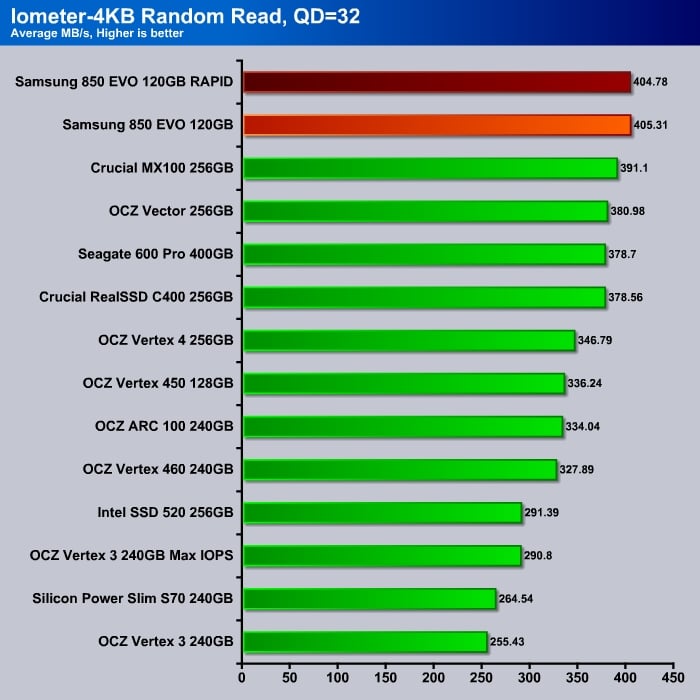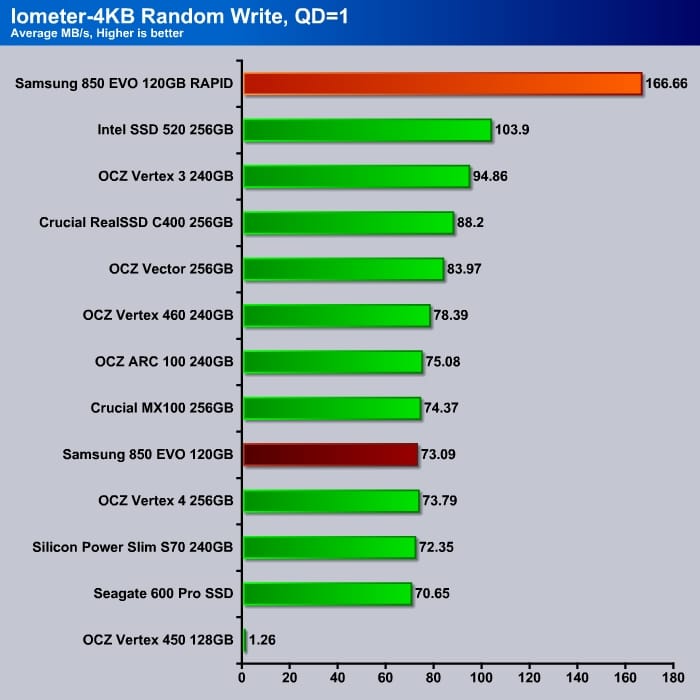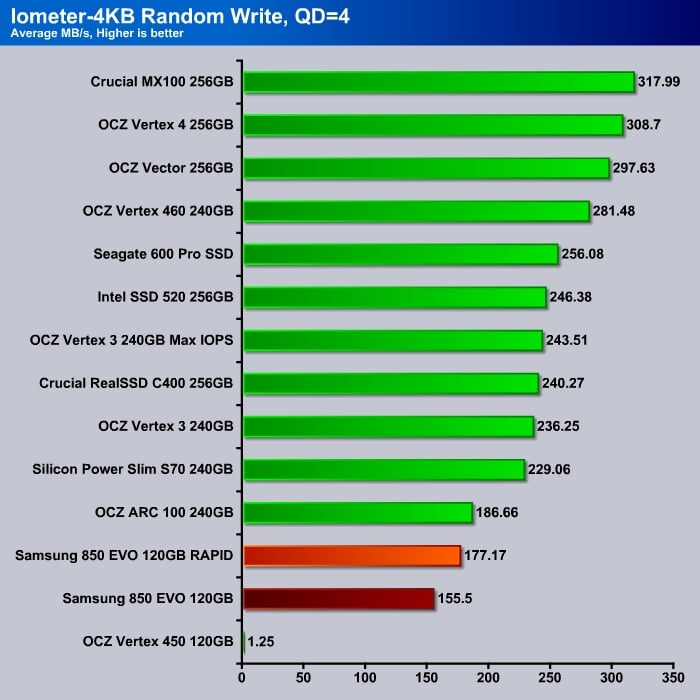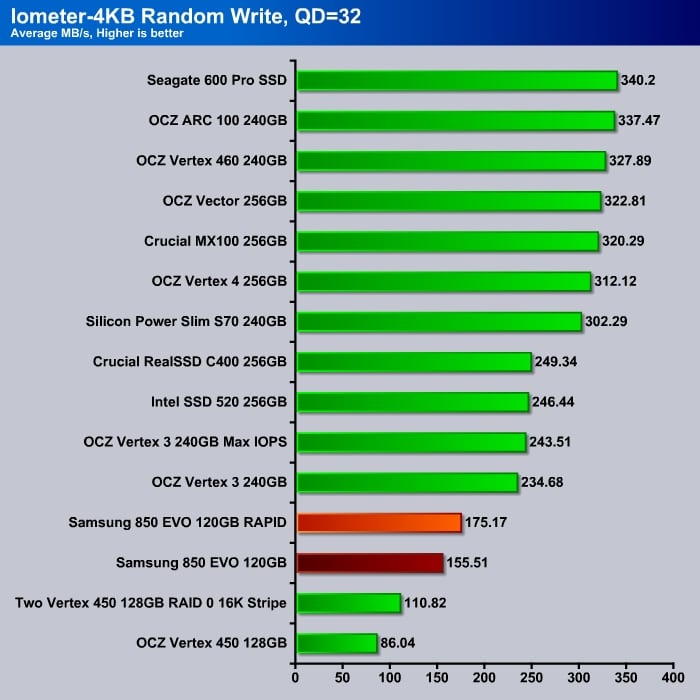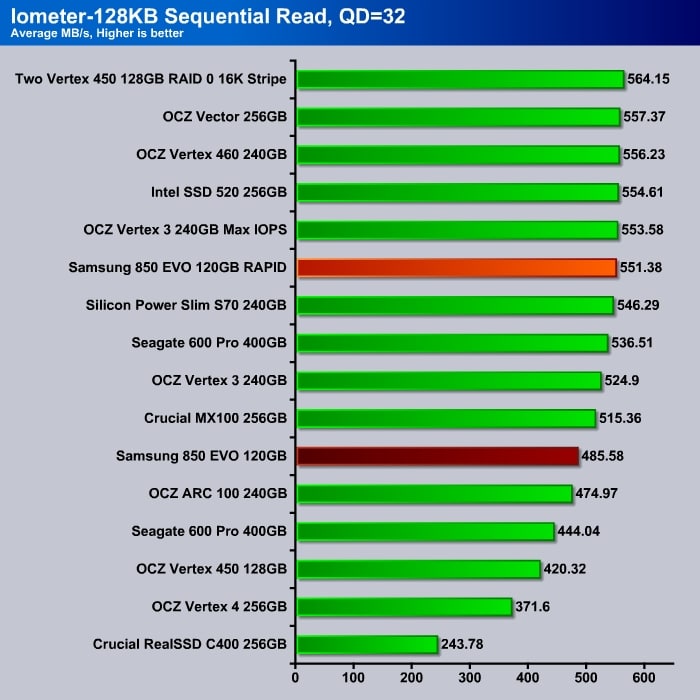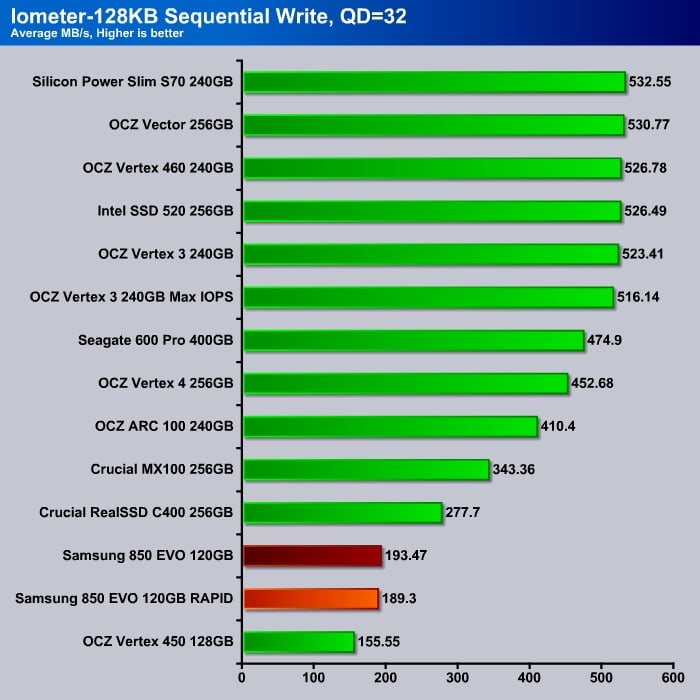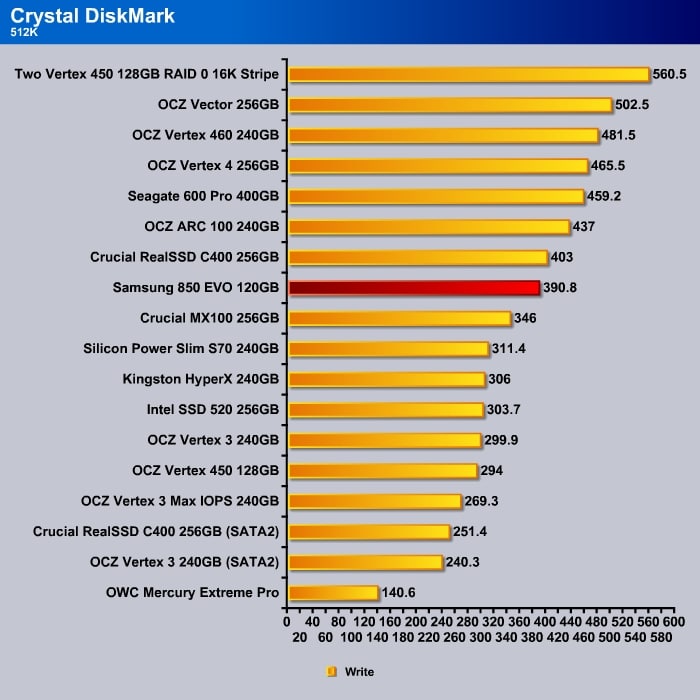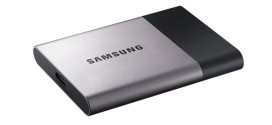TESTING & METHODOLOGY
To test the drive, we cloned our test rig drive to the SSD. It is the same test drive we’ve been using on all of our drive testing and is nothing more than a clean Windows load with all the drive testing software installed, as well as all the current drivers and patches for the OS. It’s the equivalent of doing a fresh load of OS from the disc but takes a lot less time and ensures that every drive tested uses exactly the same OS load and drivers. Nothing that may effect the outcome of the testing procedure can creep in. We ran all of the tests a total of 3 times and averaged those results. The Average of the three results are presented here. In the case of a pictorial benchmark we ran the bench 3 times and picked the median result. As with most SSD testing differences from run to run are minimal and the median result is a good indication of what you can expect from the drive. We ran our usual battery of tests on the drive, and used it as the primary boot drive during testing. All of the drives tested were used as the primary boot drive during testing. That’s a more realistic test than strapping the drive in and testing it with a bare format or as a non-boot drive and it represents real life transfer rates, much like you can expect when you install and operate the drive in your own system. Each test was performed 3 times and the average of the 3 test run is reported here.
Test Setup
| Test Setup | |
| Case Type | None |
| CPU | Intel Core i7 3770K |
| Motherboard | Gigabyte GA-Z77-UD3H |
| Ram | Kingston HyperX 1600 |
| CPU Cooler | Prolimatech Megahalem |
| Storage Drives |
|
| Optical | None |
| GPU | PNY GTX 670 |
| Case Fans | 120mm Fan cooling the mosfet CPU area |
| Docking Stations | None |
| Testing PSU | Cooler Master UCP 900W |
| Legacy | None |
| Mouse | Microsoft Intellimouse |
| Keyboard | Logitech Keyboard |
| Gaming Ear Buds | None |
| Speakers | None |
Results
Iometer
We start with the random read result from the Iometer. The 850 EVO performs rather well here as you can see it even beats out some of the 250GB drives on the market with 36.68 MB/s transfer rate.
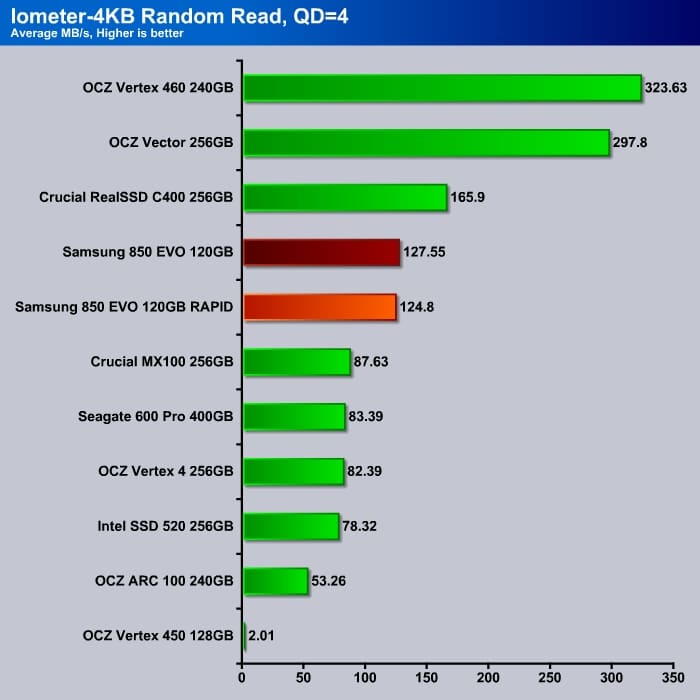
The drive continues to perform well at higher queue depth. At queue of 4, it scored a 147 MB/s and 405 MB/s for the queue depth of 32. Interestingly enough, it appears that RAPID seems to cause the drive to take a slight performance hit here.
The random write for the 850 is excellent with 73.09 MB/s. RAPID helps our drive to yield double the bandwidth to 166.66 MB/s.
At queue depth of 4 (typical desktop workloads), our 120GB is unfortunately being bottlenecked by the lack of parallelism where it delivered 155 MB/s transfer rate. Even with RAPID, we are only seeing about 14% improvement. Still, the drive is not slow by any means and as you can see it is very close to the 256GB OCZ ARC 100.
Similiar to the queue depth 4, the 120GB drive yields same result here at queue depth 32.
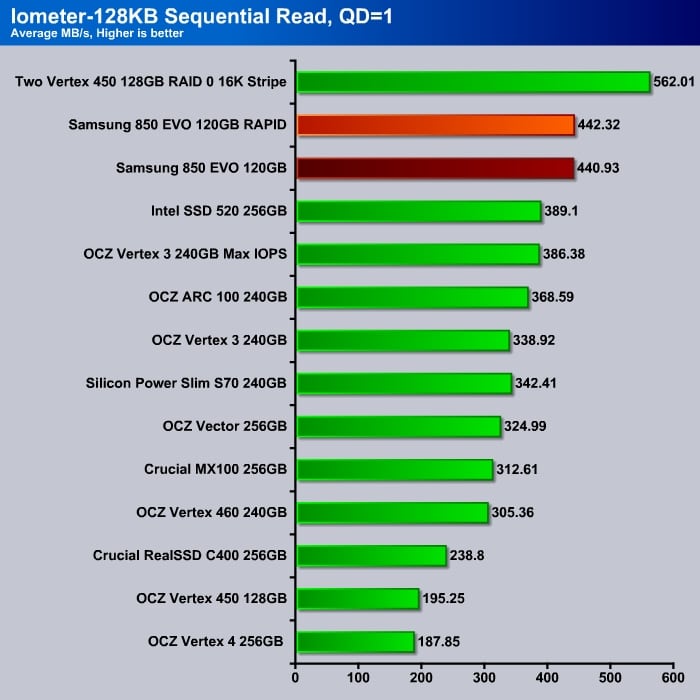
The sequential read is excellent where the drive topped the chart at 440 MB/s. The RAPID does not have much impact in the performance here.
Even at higher queues, our 120GB still manages 485 MB/s and the RAPID manages to deliver 13% improvement in the performance.
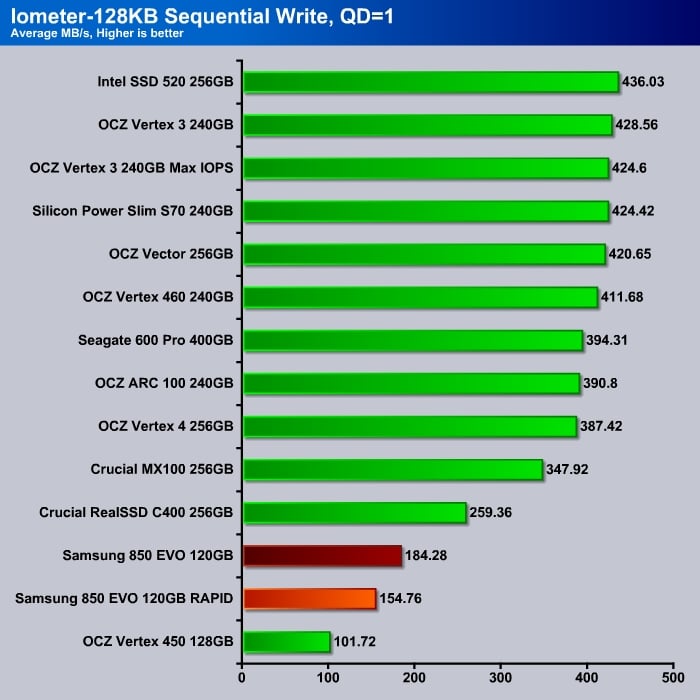
The sequential write for 120GB drive manages to deliver 154 MB/s and with RAPID, we get 19% improvement.
Higher queue does not yield much better performance due to lack of parallelism on our drive.
Crystal DiskMark 3.0.3 x64
We ran the CrystalDiskMark with the default 1GB test size.
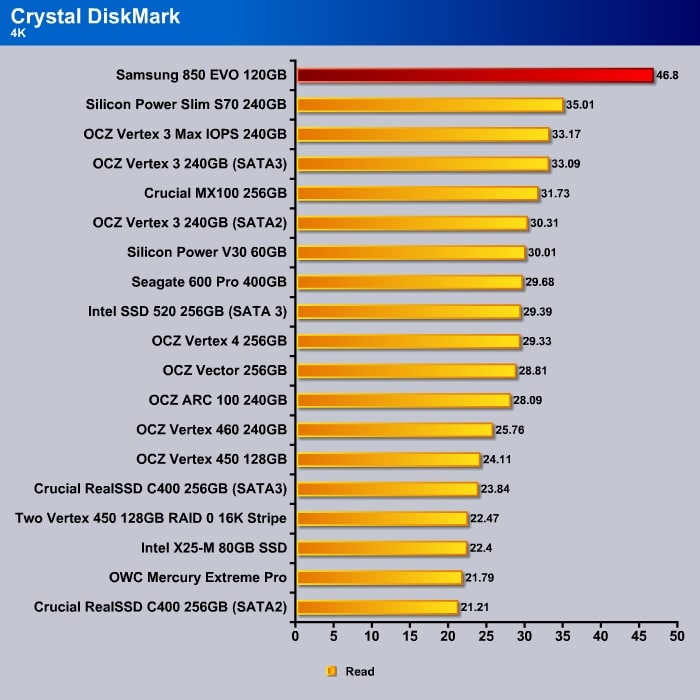

As expected, the 850 EVO does very well here taking the top stop in the random read.
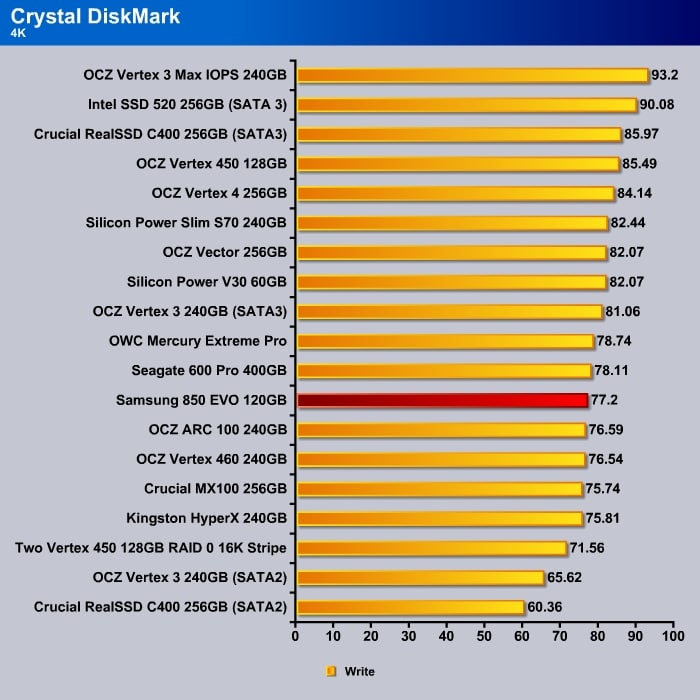
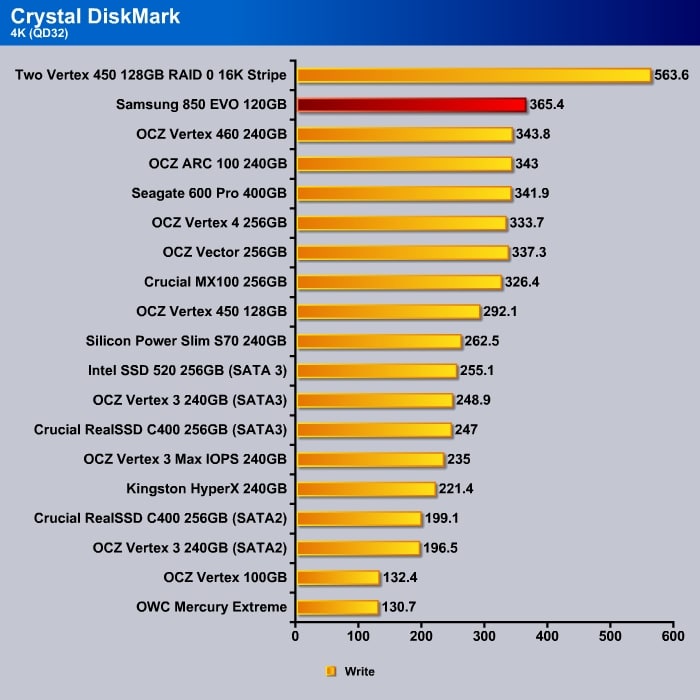
The 850 EVO does really well in the CrystalDiskMark’s random write test. The drive even take the top spot at the queue depth 32.
|
Transfer File Size
|
Transfer Rate (MB/s)
|
|
500MB
|
368.1
|
|
1GB
|
364.6
|
|
2GB
|
354.4
|
|
4GB
|
155.2
|
We re-ran the test with different test pattern so we can see how the drive performs under non-Turbo environment. When we select 4GB of test file, which is larger than the 3GB reserved space, the drive is able to write at 155 MB/s.

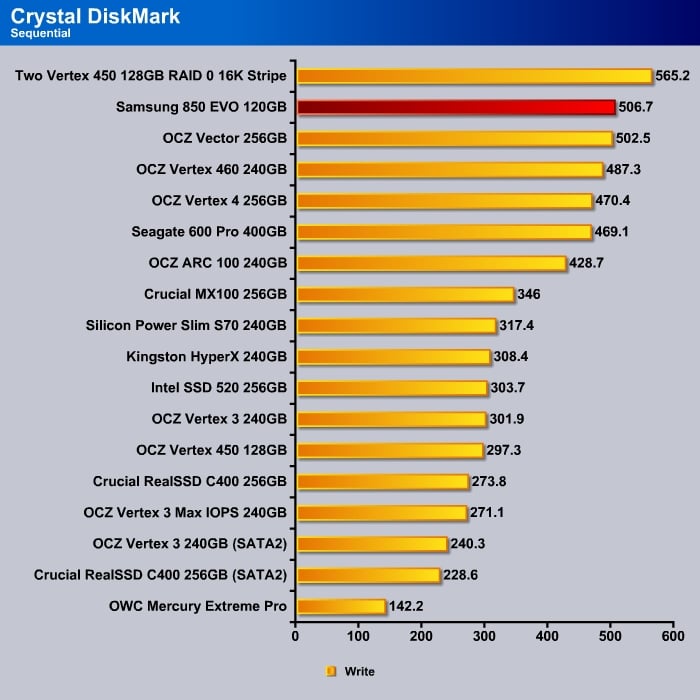
The 850 EVO does well in the sequential read and write with 525 MB/s and 506 MB/s transfer rate respectively.
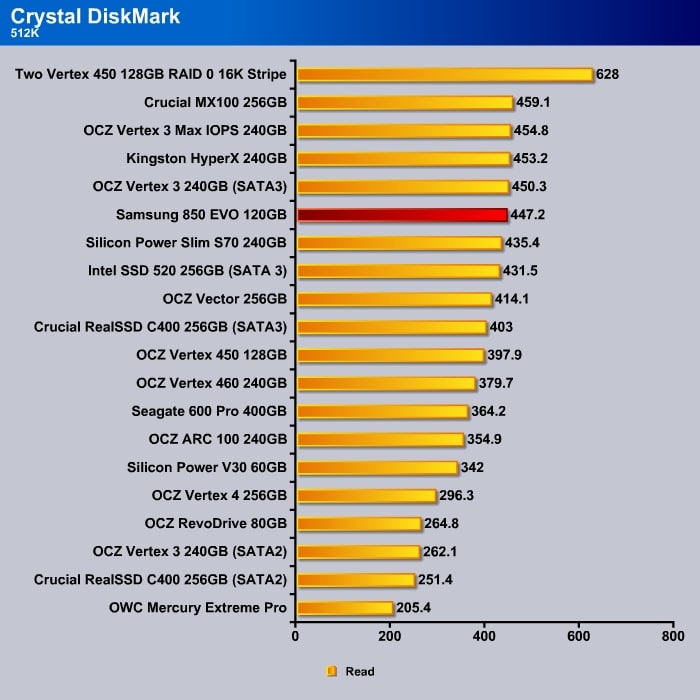
Review Overview
Performance - 9
Value - 8.5
Quality - 9.5
Feature - 9.5
Innovation - 9.5
9.2
Samsung 850 EVO 120GB
The Samsung 850 EVO offers excellent performance and features. Backed with 5 year warranty, the drive is definitely the best all-around SSD that your money can buy. We give the 850 EVO our coveted Golden Bear Award.
 Bjorn3D.com Bjorn3d.com – Satisfying Your Daily Tech Cravings Since 1996
Bjorn3D.com Bjorn3d.com – Satisfying Your Daily Tech Cravings Since 1996
